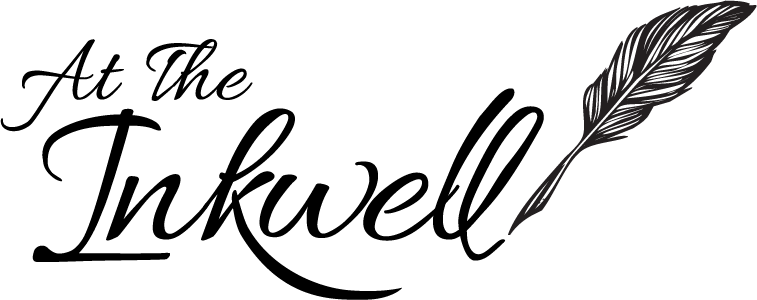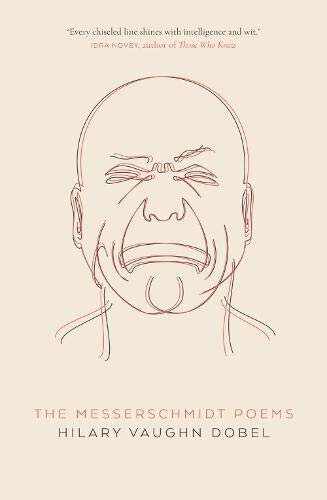The Messerschmidt Poems
The Messerschmidt Poems by Hilary Vaughn Dobel, Platypus Press, €16.50
Over the years, a surplus of art historians, doctors, and psychologists, have scratched their heads over the interpretation of the Character Heads from the German sculptor Franz Xaver Messerschmidt (1736–1783). They have suggested that the busts were the result of the artist’s alleged schizophrenia, or perhaps their creation was triggered by hallucinations. Some experts have even suggested physical ailments, such as Crohn’s Disease, may have contributed to the artist’s creativity. No one knows for sure.
What is known is that prior to the creation of the character heads, Messerschmidt’s future seemed promising. For starters, he earned a decent salary as an artist. He also was expected to become a leading professor at the elite Academy of Fine Arts in Vienna. Convinced that rival artists were conspiring against him, he sold his house and became a recluse, first living in a hut in the Swabian Mountains, then moving into a tiny house in Bratislava, the capital of present-day Slovakia. Subsequently, he suffered some kind of mental breakdown.
It often takes a poet to fashion a more inventive interpretation of another artist’s work and life. In her debut poetry collection, The Messerschmidt Poems, Hilary Vaughn Dobel does just that, taking the reader on a journey of both mind and body with skill and intelligence that much of today’s poetry lacks. As the author, Leila Chatti, acutely observes, “Dobel is a poet who sees clearly, and speaks with startling, refreshing clarity; it is a gift to be along for the ride.”
The cruelties and struggles life can unexpectedly drop on one’s doorstep can be daunting. It certainly seemed that way for Messerschmidt. The character heads are a clear expression of his pain, lapses in reason, and psychological collapse. In the poem, “Vengeance,” Dobel dives deep into the mind of this complex artist. Grief is elusive at first: “So busy walking, we missed our turn, and they took/ everything: your handsome bicycle, my grandfather’s watch,/ and I flooded the bath,” but in “A Dismal and Sinister Man,” the grief turns to rage: “How do you wake each day knowing that/you could visit your neighbor, snap his windpipe in your fist,/ none the wiser. The choice of one body, or two. The shock/of having to choose.” Then, the poem, “A Hanged Man,” suggests suicide: “What if we step off the/sill just to see what happens.”
Clearly, Messerschmidt had his share of problems, which seemed to fluctuate from the minor to the extreme. Such a mixed bag of emotions may have led him to hallucinate, as suggested in the poem, “First Beak Head:” “The spirit of proportion came to visit me, and at first, not/much changed.” But then the dramatic happens: “I found myself at four in the morning/ emptying soap-flakes into the fountain and it blew up like a/ wedding cake.” And again, in the poem, “A Haggard Old Man With Aching Eyes:” “I like to ball myself up and sink beneath/the chatter of my conscience.”
Dobel is brave enough to express her emotional strain in several of these poems as well. Cleverly using Messerschmidt as her muse, she inserts herself into his emotionally wrecked life. She is captivated by it, so much so that “…the day spun like a thaumatrope—a twist of yard/and, by all appearances, I was trapped inside it,” as expressed in the poem, “An Old Man.” And to better comprehend Messerschmidt’s reclusive existence, the poem, ““Variation of Strong Odor,” confirms: “I tell myself I like to be alone…”
I suspect that most of us have never gone to such extremes and uprooted our entire life and moved into a shack out in the middle of nowhere, although some of us have clearly thought about doing so. There have been times in our lives where we have wanted to give up. We have all been hurt or betrayed by someone, perhaps someone close to us, whom we thought was a true friend. Hardship often seems incessant. The poem, “The Simpleton,” flushes this out: “To see us examine ourselves/as one examines the city from a height, finding it veined and/shattered like a windshield.” Moreover, we are afraid to be vulnerable, and we often suffer in silence, as eluded in the poem, “Grief Locked Up Inside:” “M, I take comfort in small tasks that no longer require thought:/folding sheets, peeling onions, placing my hand on your knee/when we’d go driving.” And again, in “The Yawner,” “It seems this winter will never end…”
But winter eventually ends, at least for most of us, and we manage to crawl out of our destructive rut. We don’t let the naysayers of the world intimidate us anymore, and we certainly do not suffer a mental breakdown over a few rivals trying to ruin our life. Most importantly, we stop feeling sorry for ourselves and get back to work. Messerschmidt clearly did not learn those lessons, and he suffered for it. He died at the young age of 47, broke and alone.
I think the heart of The Messerschmidt Poems is found in the poem, “The Ultimate Simpleton,” where Dobel writes: “I want to go home…./You say over and over that this is the life you always wanted/for yourself, that there is a system here I cannot understand./But I understand better than you know.” I think, deep in our hearts, we all know that life is too short to live in misery. We want to live well and be happy. To do that, we need to conquer the “Messerschmidt” in our life, as the poem, “A Quiet Peaceful Sleep,” advises: “Let’s spend the evening together, you and me, and/your fleet of cast tin heads. I’ll work their kinks out as we/listen to the television.”
Go out and purchase this exciting collection when it becomes available in March from Platypus Press. Then sit back in your comfy reading chair and digest this brilliant portrayal of what it means to be human with all the faults, failings, and triumphs. And don’t fret if you are feeling down; be at peace and, as Dobel reminds us: “Kiss the metal goodnight.”
Matthew Hamilton
Matthew holds an MFA from Fairfield University and a MSLIS from St. John’s University. He is a 6-time Pushcart Prize nominee. His stories and poems have appeared in a variety of national and international journals, including Atticus Review, Coe Magazine, Noctua Review, Burnt Bridge, Boston Literary Magazine, Cha: An Asian Literary Journal, Muddy River Poetry Review, and Tuck Magazine. His chapbook, The Land of the Four Rivers, published by Cervena Barva Press, won the 2013 Best Poetry Book from Peace Corps Writers. His second poetry collection, Lips Open and Divine, was published in 2016 by Winter Goose. He and his wife live in Richmond, Virginia. Visit him here.


